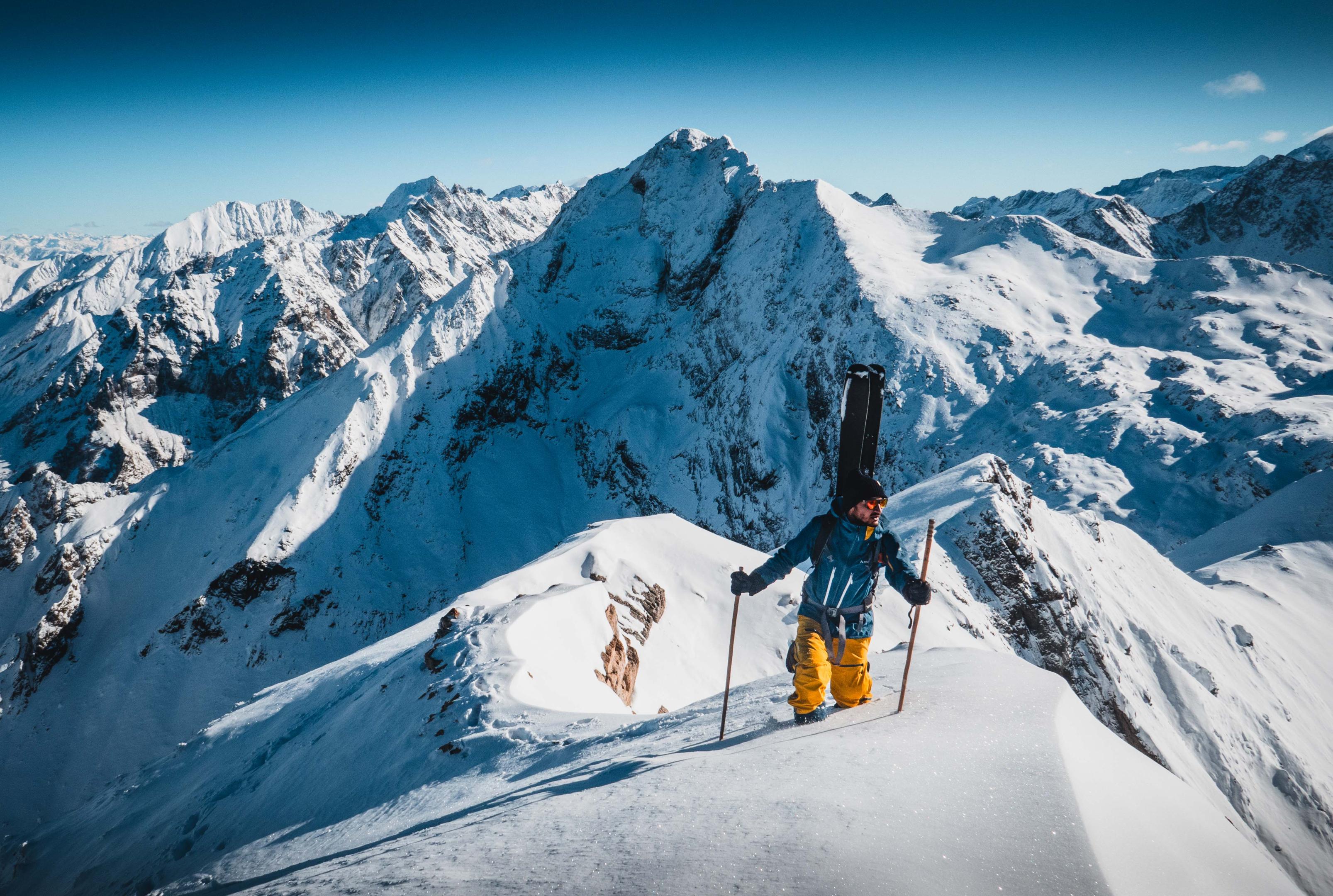JADIS - Looking Backward
After years of intensive work, William Cochet and Seb Jam, the duo behind "JADIS - Looking Backward", present their award-winning film project that delves deep into the history and culture of mountaineering in the Pyrenees. The film, which is a personal journey and reflection on environmentally conscious skiing, combines impressive landscape shots with a calm narrative style and a unique soundtrack. During filming, the filmmakers encountered challenges such as climate change and technical difficulties, but also found deep friendship and inspiration in the wild beauty of the Pyrenees. Have fun immersing yourself in the fascinating world of the Pyrenees!
Hello William, hello Seb! After several years of work, your film "JADIS - Looking Backward" has now been released. How are you doing at the moment?
WILLIAM:
Liberated! We had so much trouble finishing this crazy project that we are very relieved. But what an adventure! So many emotional stories have happened over the last four years, and the movie certainly created many beautiful images, but the shoot will forever remain a real moment of life and friendship that will be etched in us forever.
SEB:
Reassured and perhaps a little sad.
With a project of this scale, sometimes you can lock yourself in a kind of creative bubble, or our vision of the movie doesn't match the reality. A few hours before the premiere of the film in Tarbes, William and I were still doubting some aspects of the film and the choices we had made during this adventure. But the audience reaction at the festivals was fantastic. The movie really resonated with people.
As William pointed out, the filming was a very enjoyable experience. It may sound a bit clichéd, but for me the journey was more interesting than the destination. Now that the movie has been released to the public, it's as if it's no longer ours, but that's a good thing. But that's a good thing, it's time to think about the next project and start a new adventure.
What what - in a nutshell - is the movie about? And what does the title actually mean? Title actually mean?
WILLIAM:
Jadis is about a skier, in this case me, who wonders if it's consistent to keep skiing while living as frugally as possible to protect his environment. So to find solutions to these problems, he delves into the past to find out how the ancients did it.
SEB:
Jadis means "in the past time, a long time ago, before" in old French.
This movie is a look back, a search in the past time; for answers and inspiration to improve his life today and tomorrow.
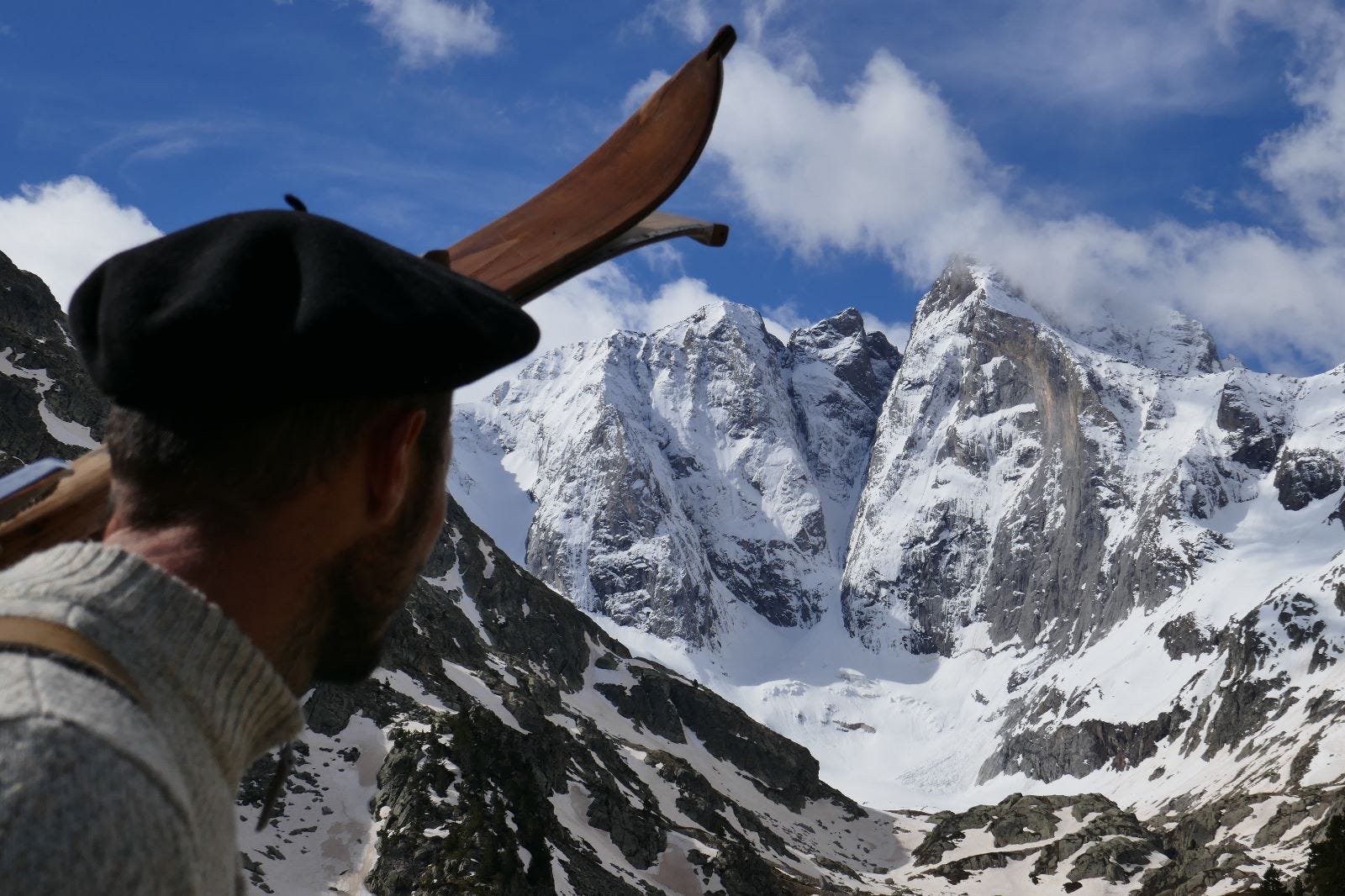

You have delved deep into the history of mountaineering in the Pyrenees for the film for the film. What do the Pyrenees mean to you personally? And what surprised you surprised or impressed you the most during your research?
WILLIAM:
This massif means so much to me. It has managed to preserve authentic, wild valleys, a strong culture and simplicity. In all these ways, the Pyrenees are remarkable, different and sublime. Their history is also very unique. Pyreneanism, for example, was more an art of living than a sport. The pioneers and adventurers of the first ascents were poets rather than conquerors!
SEB:
What surprised me most during our research was the importance of the Pyrenean massif in the history of alpinism. Pyreneanism is alpinism in the Pyrenees. These actors, the Pyreneans, had a great influence on the conquest of peaks in Europe and around the world. For example, the first winter ascent in Europe was made by Henry Russell, who was accompanied by Hippolyte and Henri Passet.
Personally, like William, I have chosen the Pyrenees as the center of my life. And on every trip to the mountains, I was overwhelmed by the beauty and purity of nature in the Pyrenees. This reassures me in my decision to live in this massif.
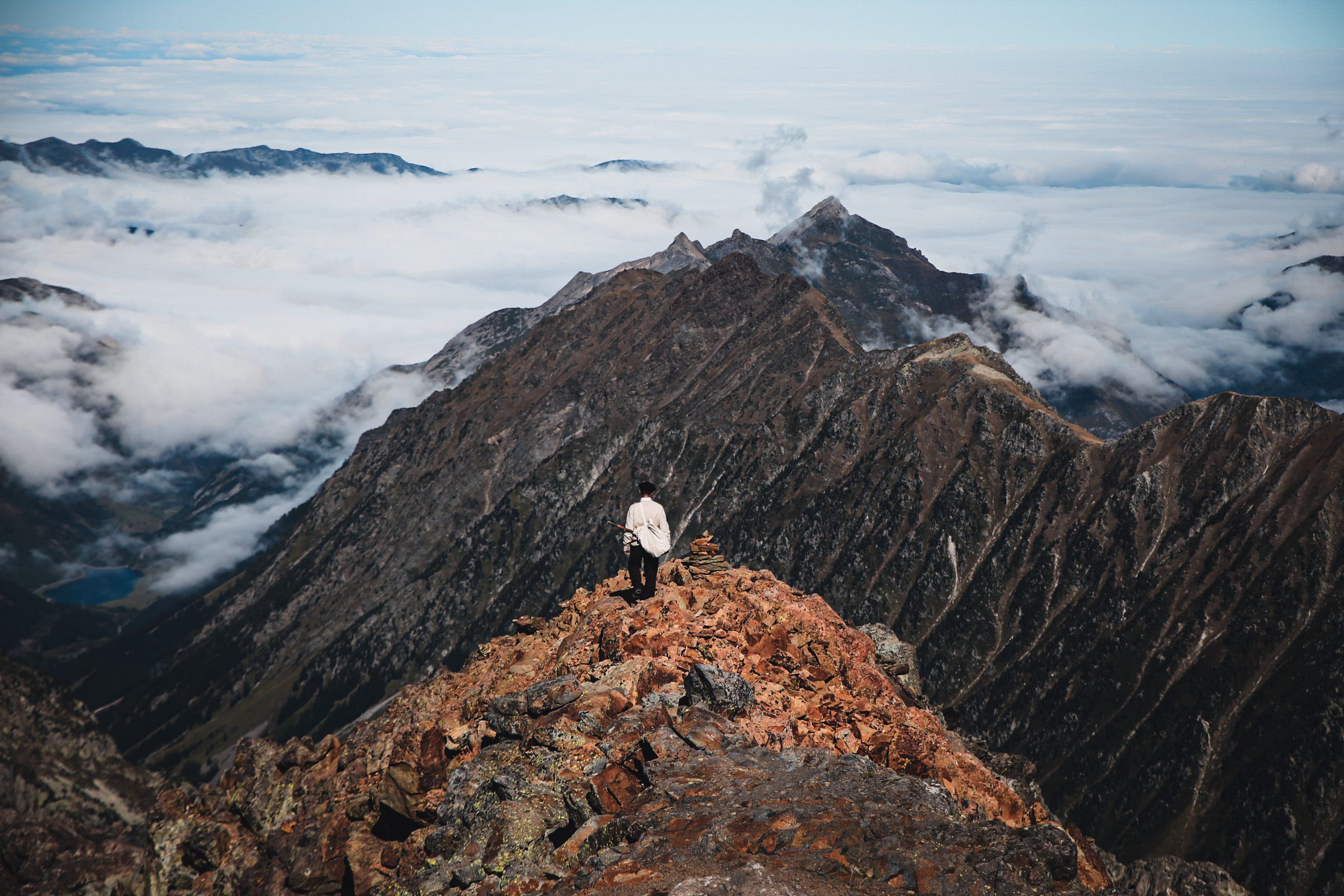

You filmed for JADIS over a long period of time and visited the mountains at the mountains at different times of year and in different conditions. What were the biggest challenges for you?
WILLIAM:
There were so many challenges. The equipment, the weather, the lockdown, a small team, this crazy movie, the growing families...
So if I had to pick one, I would say climate change. In general, climate change is the biggest problem for us, so man is the biggest problem for himself (I really know why I chose my lifestyle)! Making a movie about skiing or even just skiing in 2024 has become very complicated!
SEB:
That is indeed the case. It's always more complicated to film in winter than in summer.
The first two years were pretty smooth, apart from some failures due to the quality of the snow or the weather. The last year of filming was more difficult because we were missing some key images to complete the story satisfactorily. This included a final shoot on the summit of Aneto, which had turned us down twice the year before.
Fortunately, the fifth shoot on the summit of the Pyrenees in 2023 was a success. Because the snow conditions in 2024 are very scary.
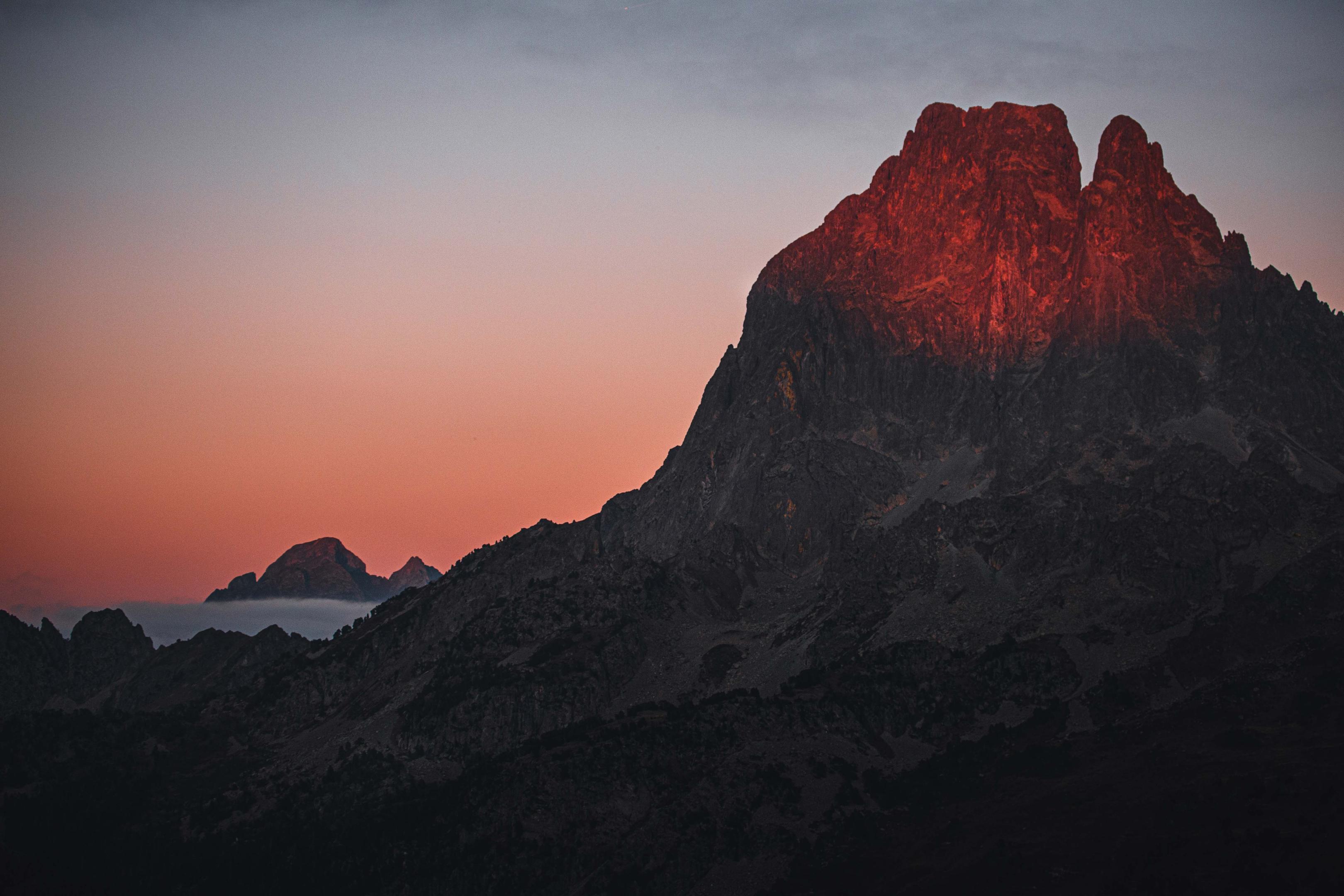

Did during your research and during your many days of filming in the mountains of climate change? For example, are there any traditions about the Winters in the past? And how have winters changed for you in recent years? changed for you?
WILLIAM:
I don't think there's any ambiguity in that respect. They used to ski all the way to the valleys, get off the train at 800 or 1000 meters and set off with skis on their feet! That's simply unthinkable today. And everything is getting faster and faster. Between our first visit to Aneto four years ago and the last one last year (we've been there five times), for example, a rock face has appeared, protruding from the glacier because it's melting.
SEB:
I think the biggest visual shock of climate change between yesterday and today is the Russell Caves. From 1881 to 1890, Count Henry Russell, a well-known Pyrenean explorer, had a group of seven caves dug into the summit of the Ossoue glacier in the Vignemale massif. It is impressive to have a landmark that bears witness to the retreat of the glacier.
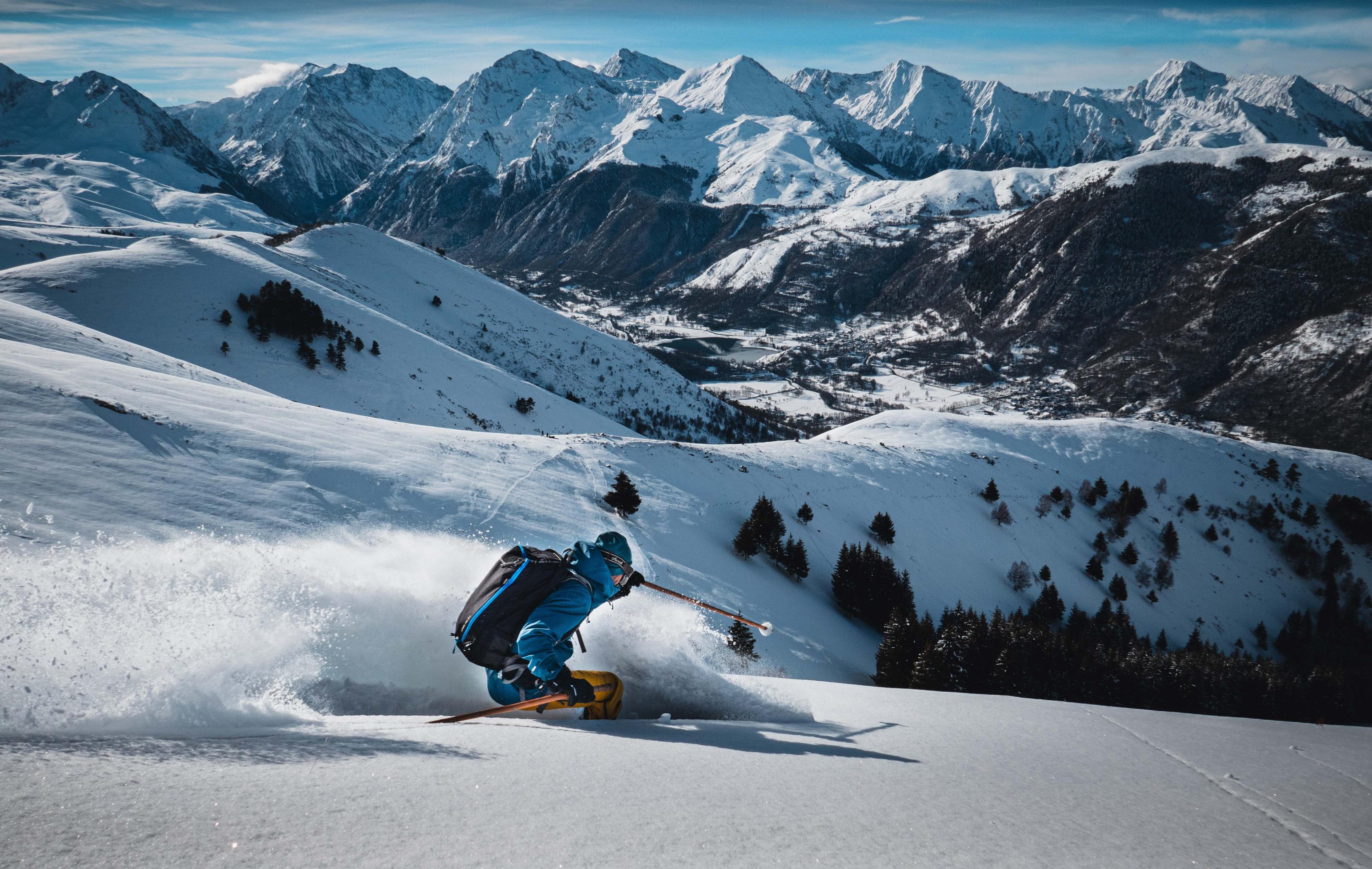

William, you have been an environmental activist for many years, you have significantly shaped Biomedia and the Bioskieur. You are also a VAUDE athlete and POW Ambassador. At the same time passionate skier and know the freeride community very well. In the Film, you very impressively show the conflict between the seasonal "chasing the pow" and the - let's say - "question of meaning" with regard to this lifestyle this lifestyle. Which path did you choose? How do you now lead your Life?
WILLIAM:
I have chosen to try and become aware of my biggest impacts and these are in my daily life. Because of this, I have changed my life by starting my farm and the lifestyle that goes with it to be as sober as possible.
After that, I do what I can to ski as easily as possible, and the first thing I do is stop chasing powder by stopping moving further away, so I stopped traveling by plane 15 years ago, for example. And I looked for environmentally conscious sponsors, so Vaude was a no-brainer!
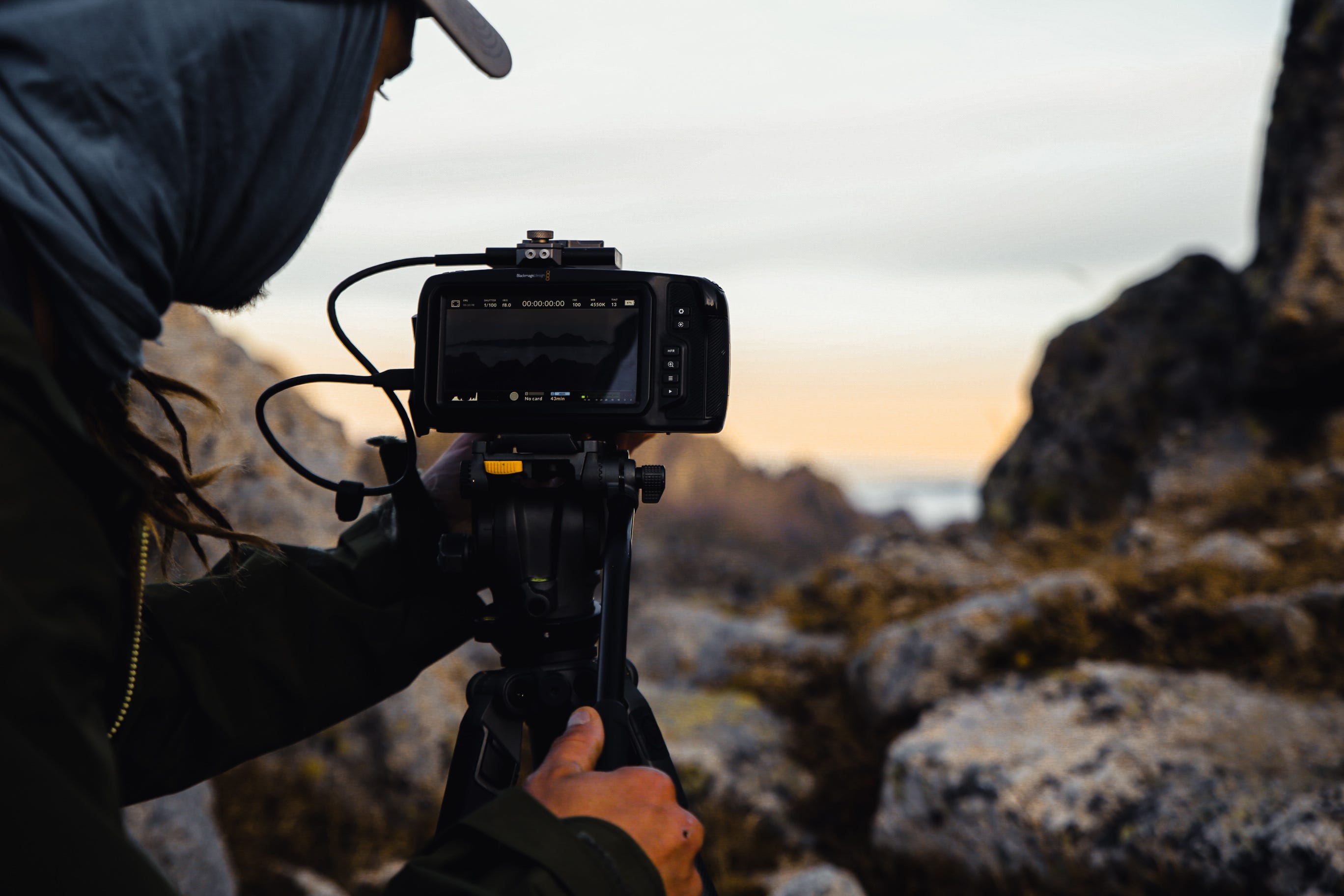

We would like to talk to you briefly about the special aesthetics of JADIS. We know of no other movie like it - the very calm narrative style, the impressive impressive landscape images and the unique soundtrack by Louni create a very special atmosphere. Did you have this vision from the start? And did you perhaps want to set a counter-accent to the fast-moving and extremely short short social media videos of today?
WILLIAM:
Originally, we definitely wanted to make a proper film for festivals that you could watch in peace in a movie theater. But it wasn't really planned that way, we wanted to make an adventure movie, with a lot of punch, but at home and with weird equipment!
Seb quickly realized that it was impossible to make this kind of film with just the two of us. Like a great chef in the kitchen, he saw what he had in his camera and made his own sauce! The result is just the result of his talent.
SEB:
First of all, I wanted to make a beautiful mountain movie. To capture these Pyrenees and share them with other enthusiasts.
It's clear that this is not a movie for everyone. But nevertheless, during our exchanges at festivals, I was surprised at how well the film was received by a young generation of mountaineers and freeriders who just needed a change from what modern media offers them.
Cinema, whether about mountains or other subjects, is first and foremost a means of escape. But it's difficult to really escape on your cell phone.
It's clear that Jadis is a movie that, like other movies, wants to be enjoyed. A decent sized screen, a good sound system, a glass of your favorite beverage and you can let the images and sound carry you for 38 minutes.
Robin Goldstyn, AKA LOUNI, has done an incredible job on the soundtrack. He adapted very well to my editing style and some moments of the movie couldn't exist without his music. At least in my head.
One thing you should know about LOUNI's music: there are no instruments in his music. Just his vocal chords.
We were inspired by the movie and really enjoyed it! Thank you for that! Would you like to say anything else at the end?
WILLIAM:
I hope it inspires people to complete the change.
SEB:
I hope the movie is as well received online as it is in the Vaude offices. If the movie motivates people to go out and enjoy nature and the mountains. That's the most important thing for me. If it makes people think a little, all the better.
